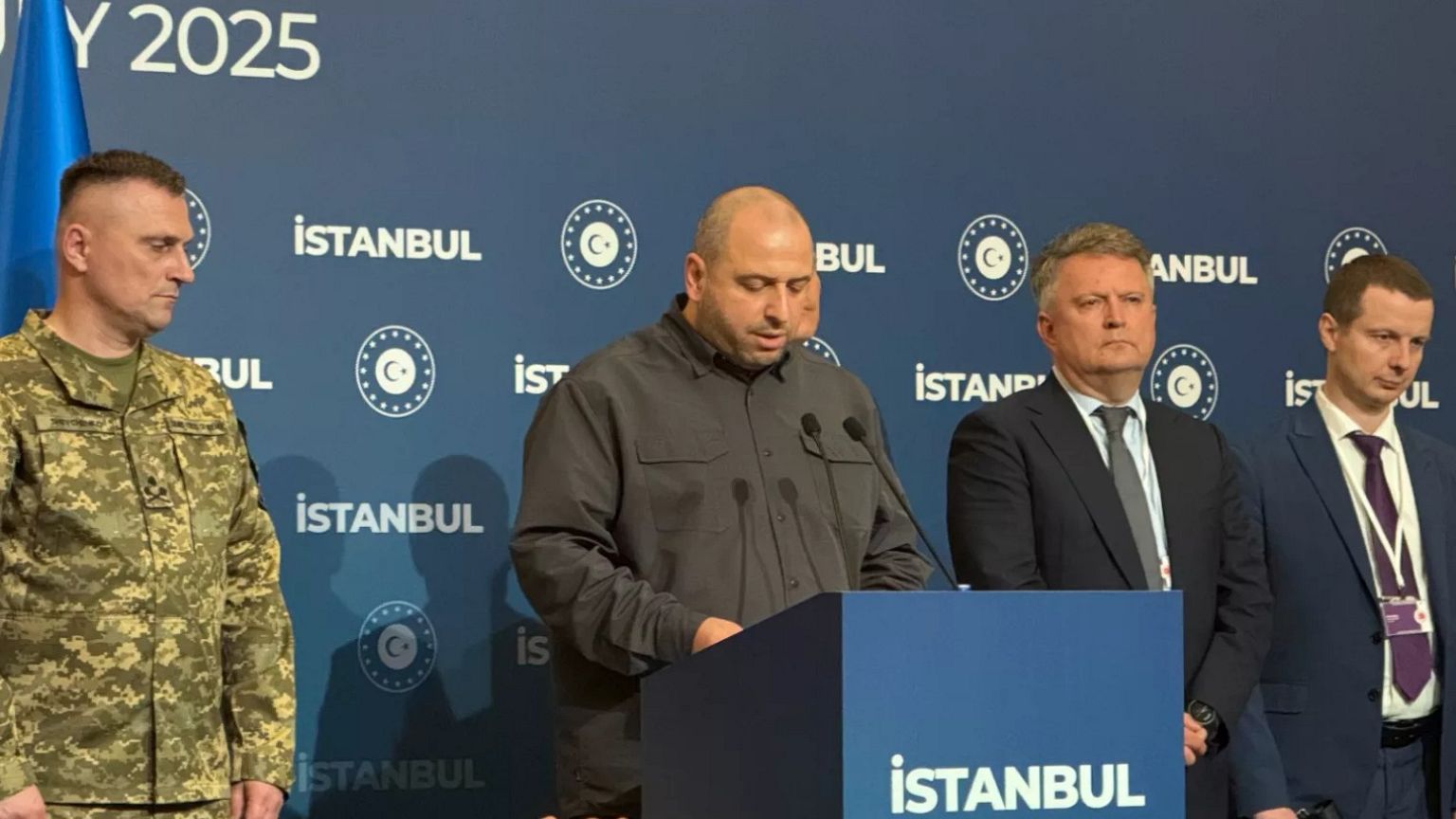Top Stories
Ukrainian Delegation Proposes Summit with Putin by August End

Ukrainian negotiators have proposed a “summit of leaders” between President Volodymyr Zelenskyy and President Vladimir Putin by the end of August 2023. This suggestion came during the third round of peace talks held in Istanbul, where discussions focused on a potential ceasefire and broader peace agreements. The head of the Ukrainian delegation, Rustem Umerov, expressed hope that if Russia accepts this proposal, it would demonstrate a constructive approach to the ongoing conflict.
Umerov emphasized Ukraine’s readiness for an unconditional ceasefire, which he described as essential for meaningful negotiations. He stated, “The ceasefire must be real, it must include a complete cessation of all attacks on civilians and critical infrastructure.” The Ukrainian delegation also aims to prioritize humanitarian issues, particularly regarding the exchange of prisoners, including children. Previous rounds of talks have facilitated significant prisoner swaps, yet there have been no tangible steps towards ending the ongoing conflict, which has persisted for over three years.
In May, Zelenskyy publicly challenged Putin to engage in direct negotiations, a proposal that was initially dismissed by the Russian leader. On the sidelines of these talks, Dmitry Peskov, the Kremlin spokesman, noted that the Istanbul meeting would discuss key draft memorandums of understanding on peace terms, ceasefire conditions, and prisoner exchanges. He remarked, “These are opposite to each other. Therefore, great diplomatic work will be done.”
The Russian delegation was led by Vladimir Medinski, an advisor to Putin, with Turkish Foreign Minister Hakan Fidan chairing the negotiations. The involvement of Turkey reflects its ongoing role in mediating discussions between the two nations. Zelenskyy announced the Istanbul talks earlier in the week, highlighting the importance of seeking common ground for peace and addressing ceasefire conditions.
Russia has outlined its conditions for ending the conflict, which include Ukraine’s complete withdrawal from four regions—Donetsk, Luhansk, Zaporizhzhia, and Kherson—that Moscow claims as its “new territories.” Additionally, Russia seeks international recognition of these territories, as well as the Crimean Peninsula, which it has occupied since 2014. Conversely, Ukraine’s conditions for peace center on achieving a ceasefire, facilitating negotiations, and ensuring the return of prisoners of war, particularly children abducted by Russian forces.
Negotiations between Ukrainian and Russian officials began on February 28, 2022, just days after the onset of Russia’s full-scale invasion. The initial talks took place on Ukraine’s border with Belarus, following a discussion between Zelenskyy and Belarusian President Alexander Lukashenko.
As the conflict continues to evolve, the proposed summit and ongoing discussions in Istanbul signify critical steps towards potentially resolving a war that has led to significant humanitarian crises and geopolitical tensions in the region. The international community watches closely as both sides navigate these complex negotiations, hoping for a breakthrough that could pave the way for lasting peace.
-

 Top Stories3 months ago
Top Stories3 months agoTributes Surge for 9-Year-Old Leon Briody After Cancer Battle
-

 Entertainment4 months ago
Entertainment4 months agoAimee Osbourne Joins Family for Emotional Tribute to Ozzy
-

 Politics4 months ago
Politics4 months agoDanny Healy-Rae Considers Complaint After Altercation with Garda
-

 Top Stories4 months ago
Top Stories4 months agoIreland Enjoys Summer Heat as Hurricane Erin Approaches Atlantic
-

 World5 months ago
World5 months agoHawaii Commemorates 80 Years Since Hiroshima Bombing with Ceremony
-

 Top Stories3 months ago
Top Stories3 months agoNewcastle West Woman Patricia Foley Found Safe After Urgent Search
-

 Top Stories5 months ago
Top Stories5 months agoFianna Fáil TDs Urgently Consider Maire Geoghegan-Quinn for Presidency
-

 World5 months ago
World5 months agoCouple Convicted of Murdering Two-Year-Old Grandson in Wales
-

 World5 months ago
World5 months agoGaza Aid Distribution Tragedy: 20 Killed Amid Ongoing Violence
-

 World5 months ago
World5 months agoAristocrat Constance Marten and Partner Convicted of Infant Murder
-

 Top Stories4 months ago
Top Stories4 months agoClimbing Errigal: A Must-Do Summer Adventure in Donegal
-

 Top Stories4 months ago
Top Stories4 months agoHike Donegal’s Errigal Mountain NOW for Unforgettable Summer Views









